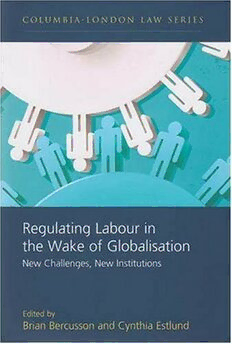
Regulating Labour in the Wake of Globalisation: New Challenges, New Institutions (Columbia-London Law) PDF
291 Pages·2008·1.278 MB·English
Most books are stored in the elastic cloud where traffic is expensive. For this reason, we have a limit on daily download.
Preview Regulating Labour in the Wake of Globalisation: New Challenges, New Institutions (Columbia-London Law)
Description:
In recent decades, the prevailing response to the problem of unacceptable labor market outcomes in both Europe and North America — national regulation of labor standards and labor relations, coupled with collective bargaining — has come under increasing pressure from the economic and technological forces associated with globalization. As those forces have shifted power away from national governments and labor union and toward capital, the appropriate institutional locus of labor regulation has become hotly contested. There have been efforts to move the locus of regulation downward to smaller units of governance, including firms themselves, upward to larger units such as regional federations and international organizations, and outward to non-governmental organizations and civil society. In this volume, labor relations scholars from North America and Europe examine the efficacy of these emerging forms of labor regulation, their democratic legitimacy, the goals and values underlying them, and the appropriate direction of reform.
See more
The list of books you might like
Most books are stored in the elastic cloud where traffic is expensive. For this reason, we have a limit on daily download.
